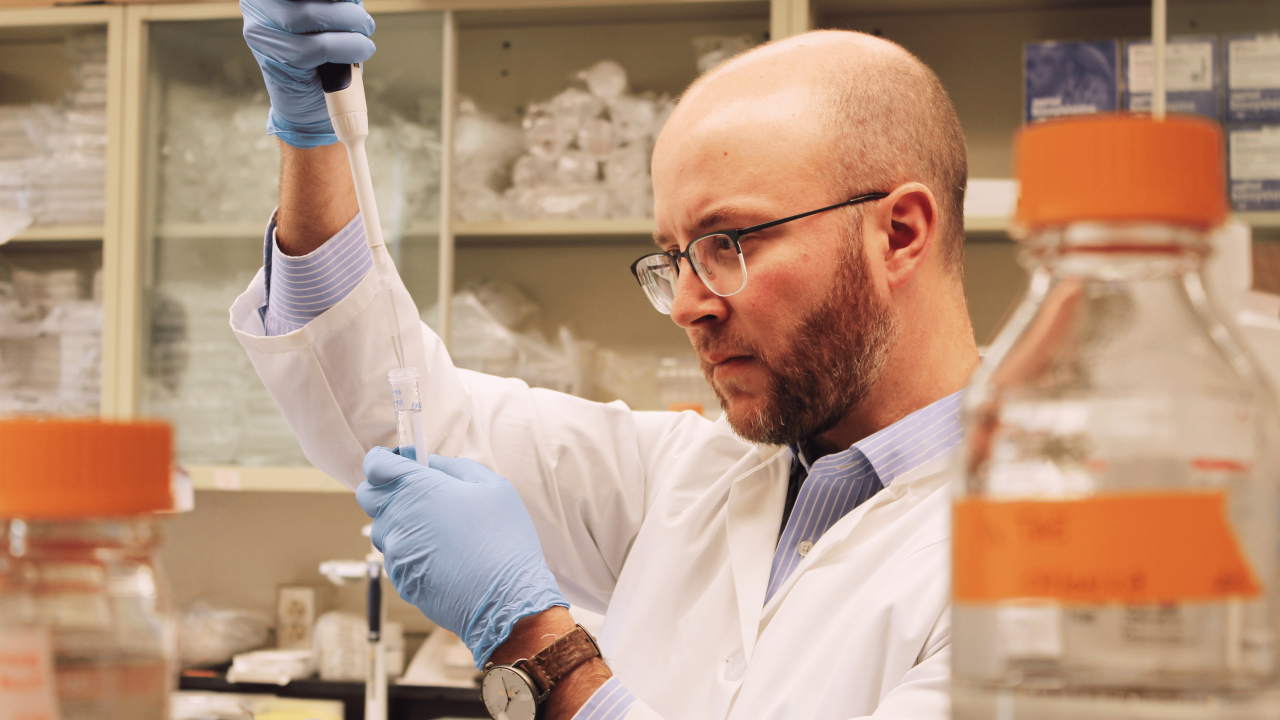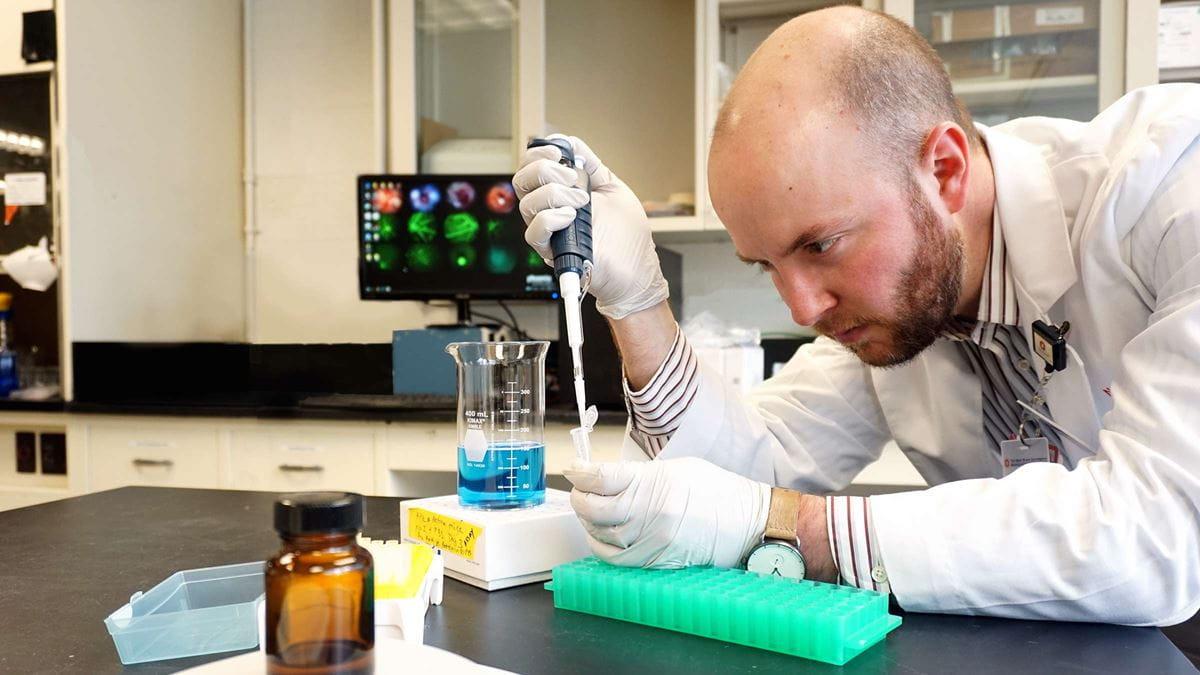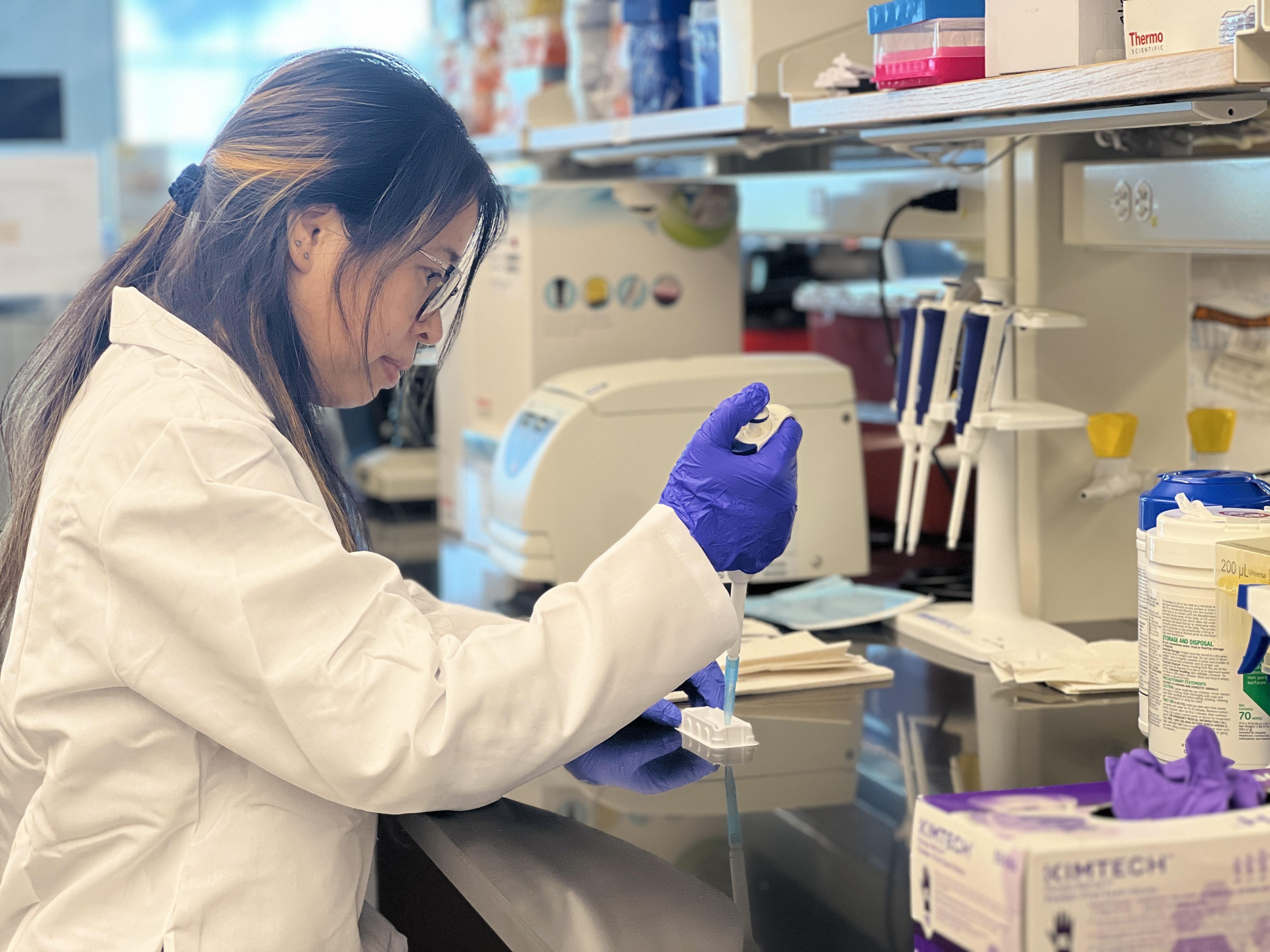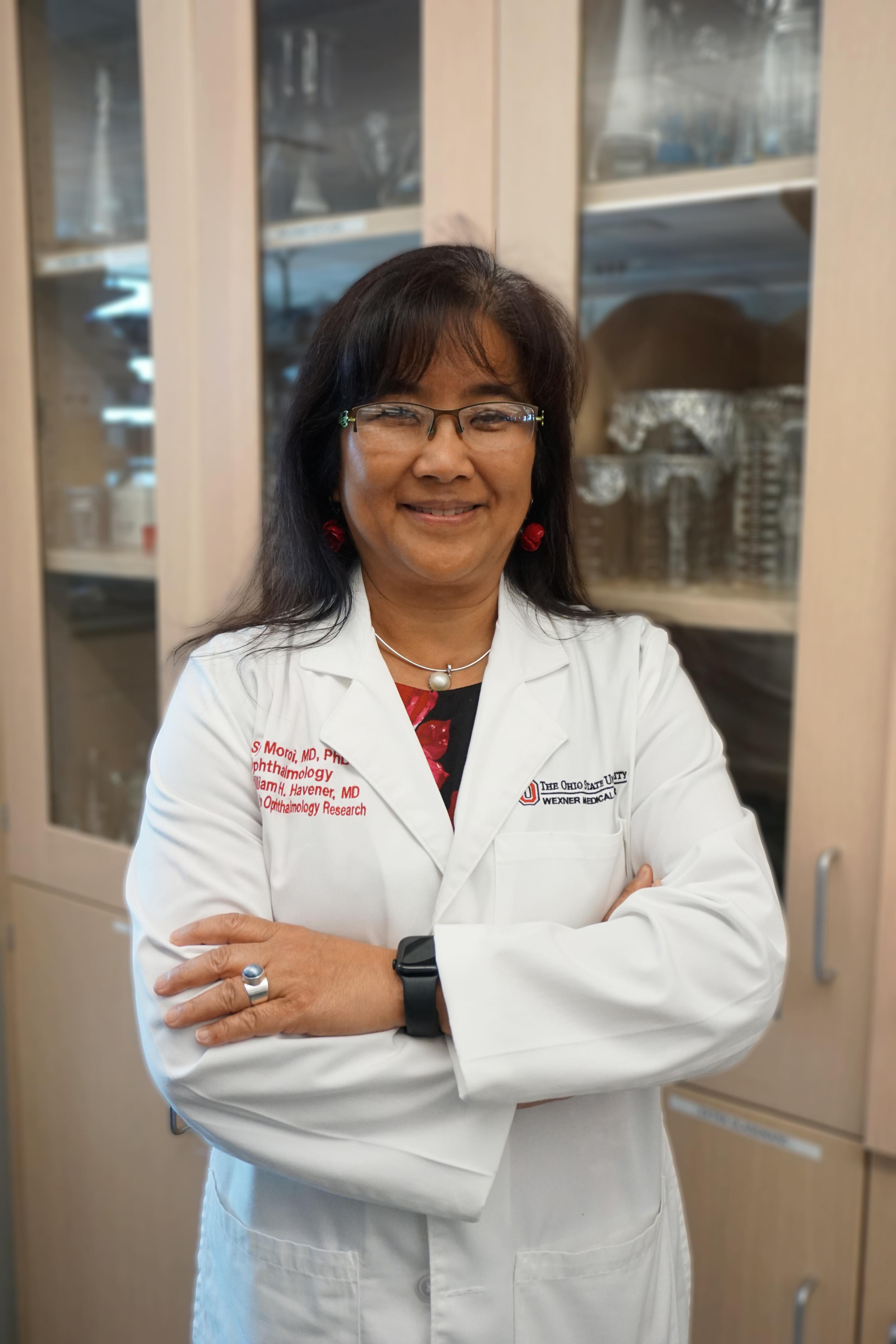Mendel Laboratory
Thomas Mendel, M.D., Ph.D., leads a translational laboratory investigating the development and implementation of gene therapies for patients with inherited retinal diseases. Patients with inherited retinal diseases (IRDs) experience diminished vision in low light or night blindness, loss of color vision, light sensitivity and progressive vision loss due to the degeneration of specific retinal cells. IRDs can affect individuals of all ages and account for 20% of blindness in adults.
Genetics research is essential for precision-based care to provide earlier diagnosis, improve outcomes, elucidate the genetic causes of disease and determine the best treatments and their timing for each patient. Dr. Mendel provides care to both adults and children affected by these diseases in the Department of Ophthalmology and Visual Sciences at Ohio State and at Nationwide Children's Hospital.



